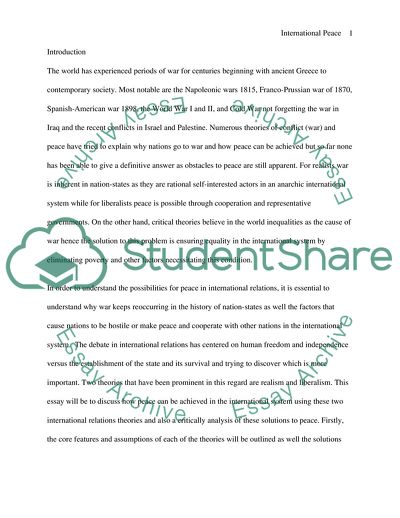Cite this document
(How Can International Peace Be Achieved Coursework Example | Topics and Well Written Essays - 2250 words, n.d.)
How Can International Peace Be Achieved Coursework Example | Topics and Well Written Essays - 2250 words. https://studentshare.org/politics/1835184-using-at-least-two-ir-theories-how-can-international-peace-be-achieved
How Can International Peace Be Achieved Coursework Example | Topics and Well Written Essays - 2250 words. https://studentshare.org/politics/1835184-using-at-least-two-ir-theories-how-can-international-peace-be-achieved
(How Can International Peace Be Achieved Coursework Example | Topics and Well Written Essays - 2250 Words)
How Can International Peace Be Achieved Coursework Example | Topics and Well Written Essays - 2250 Words. https://studentshare.org/politics/1835184-using-at-least-two-ir-theories-how-can-international-peace-be-achieved.
How Can International Peace Be Achieved Coursework Example | Topics and Well Written Essays - 2250 Words. https://studentshare.org/politics/1835184-using-at-least-two-ir-theories-how-can-international-peace-be-achieved.
“How Can International Peace Be Achieved Coursework Example | Topics and Well Written Essays - 2250 Words”. https://studentshare.org/politics/1835184-using-at-least-two-ir-theories-how-can-international-peace-be-achieved.


